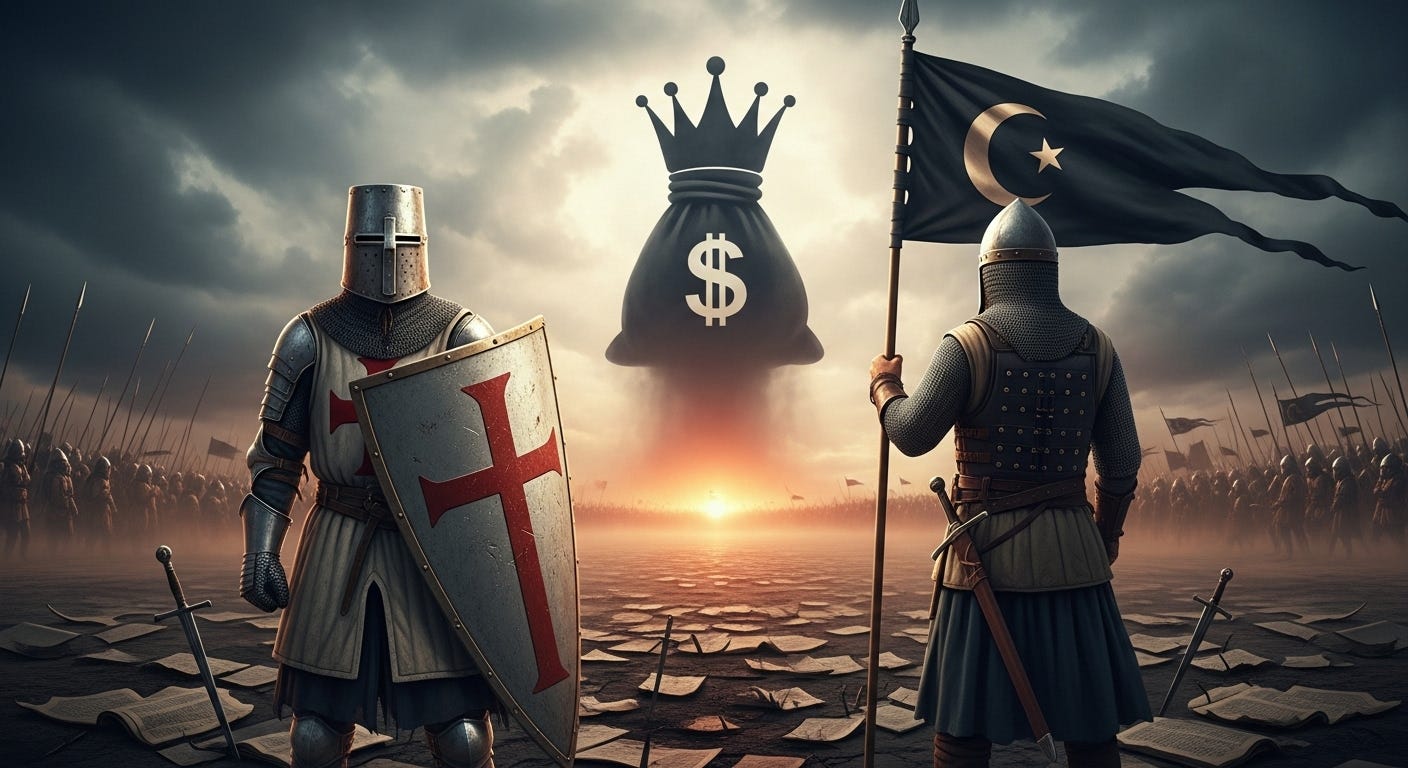The Lies Behind the Crusades and Jihad That Still Shape the World
Leaders waved God’s name like a flag while chasing land, power, and glory
If you ask a Christian nationalist why the Crusades happened, they’ll say Europe rose up to defend Jesus from Muslim invaders. Ask a Muslim hardliner about Jihad, and they’ll say they fought to defend Islam from Christian aggression. Both sides swear God told them to fight. But underneath this holy façade, you find something far less honorable and certa…



